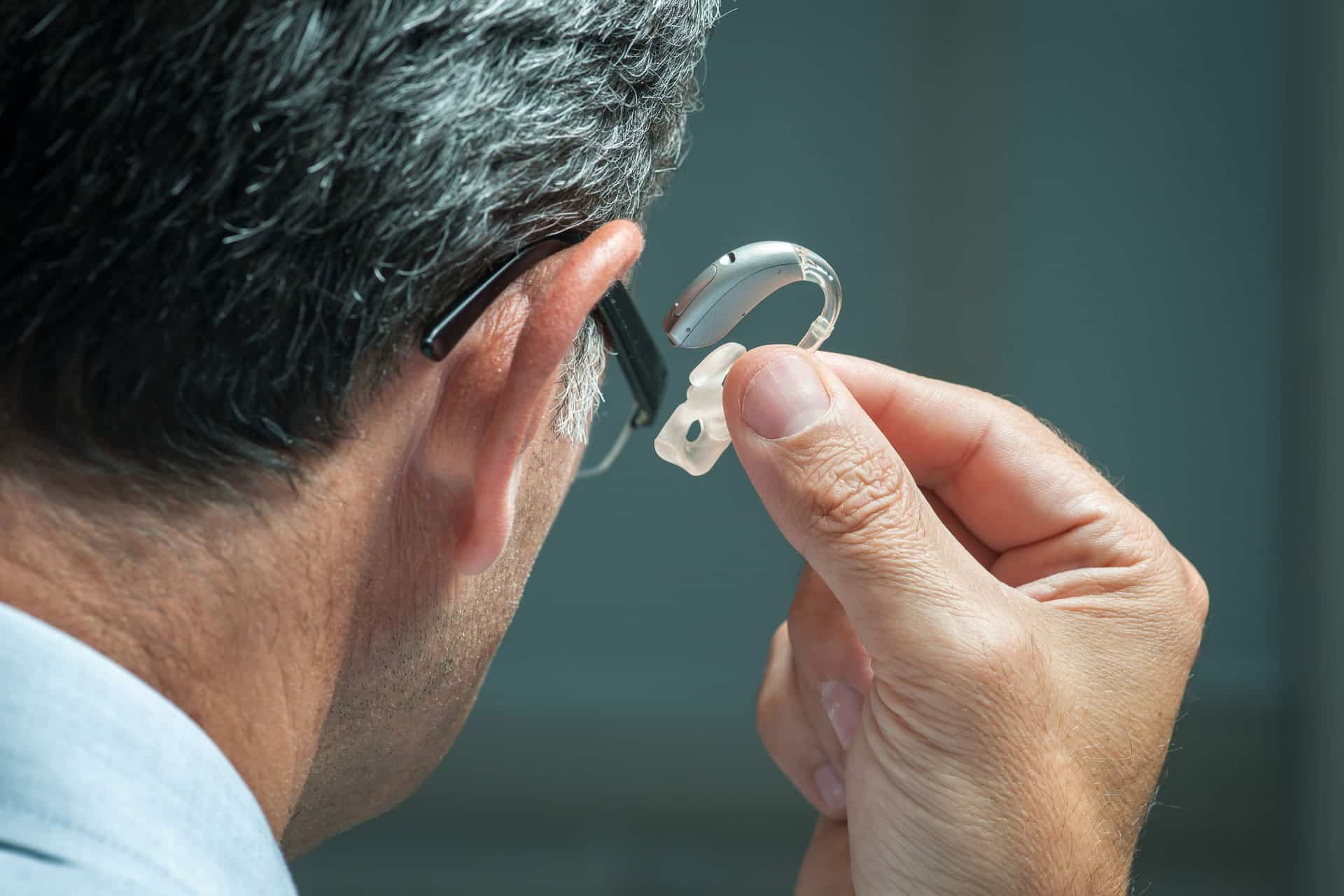Delivery in 2-3 working days
Hearing loss and work: coping with hearing loss at work
Have you ever felt that the sounds and conversations around you sound muffled or distorted? Or that you have to strain to follow your colleagues at work? If so, you may be suffering from hearing loss. In this article, we will address the topic of hearing loss and work and clarify how those affected can deal with it.
What is hearing loss?
Hearing loss refers to the partial or complete loss of the ability to hear. It can be caused by a variety of factors, including aging, noise exposure, disease, injury or genetic predisposition.
Hearing loss can manifest itself in different ways, such as a general difficulty in understanding speech and sounds, a feeling of ringing in the ears or an inability to perceive soft sounds. Depending on the severity of the hearing loss, hearing aids or other assistive listening systems can be used to improve communication and quality of life for those affected.
Regular hearing evaluation and timely access to audiological care are important to detect hearing loss early and take appropriate action.

Hearing loss in the workplace:
An underestimated occupational disease
Hearing loss is not just a problem of old age. It is also a recognized occupational disease, especially in occupational groups exposed to high noise levels.
The symptoms of hearing loss can have a negative impact on the quality of life of affected workers. In addition to the obvious difficulties in communicating and understanding instructions, hearing loss can also lead to social isolation and psychological distress. It is therefore important that employers take appropriate measures to ensure the protection of their employees' hearing in the workplace.
Noise exposure and noise-induced hearing loss
Noise-induced hearing loss is a form of hearing damage caused by prolonged exposure to noise in the workplace. Machinery, vehicles, music - all of these noises can raise noise levels in decibels and increase the risk of hearing damage. Noise-induced hearing loss is one of the most common occupational diseases and can lead to permanent hearing loss.
Hearing protection in the workplace
Hearing protection is therefore essential to prevent further hearing damage.
It is important that companies carry out noise measurements to determine the exact noise exposure in the workplace and take appropriate protective measures. These can include, for example, soundproof walls, soundproof booths or the use of quieter equipment and machinery. There are also different types of hearing protection, such as earplugs or earmuffs, which reduce noise levels and protect your hearing.
In addition, regular hearing protection examinations should be carried out for employees in order to detect possible hearing damage at an early stage and to be able to take appropriate measures. Comprehensive awareness of the issue of noise exposure and the promotion of preventive measures help to protect employees' health in the long term.
How can I prevent hearing loss?
There are several ways to prevent hearing loss and protect hearing health. One of the most important measures is to avoid loud sounds and noise whenever possible. Prolonged and repeated exposure to noise can cause damage to the sensitive auditory sensory cells in the inner ear. Therefore, it is advisable to be aware of the situations in which you are exposed to loud noises and to take protective measures if necessary.
The use of hearing protection devices such as earplugs or earmuffs is especially important when working in noisy environments or in situations where the noise level is high. This protective equipment helps to reduce the sound level and protect the ear from excessive stress.
In addition, it is important to consciously pay attention to hearing health in everyday life as well. For example, one should set the volume of music or other audio sources to an appropriate level and avoid setting headphones excessively loud. A healthy lifestyle that includes protecting hearing can help prevent hearing loss in the long term.
Support and resources for people with hearing loss
There are many resources and support for people with hearing loss. The Workers' Compensation Board, ENT physicians and hearing care professionals can help you take the right steps.
Support from the employers' liability insurance association
The Berufsgenossenschaften are institutions that look after the safety and health of workers. If you suffer from hearing loss because of your job, you can get assistance from your workers' compensation board. These organizations offer specialized counseling services to help workers with hearing loss adapt their workplace and provide appropriate hearing protection devices.
By assessing the work environment and taking targeted measures to reduce noise, the Workers' Compensation Board can help minimize the risk of further hearing loss and ensure a safe work environment. They can also provide information on rehabilitation and compensation options to help workers with hearing loss overcome challenges.
Help from otolaryngologists and audiologists
ENT physicians and audiologists are professionals who specialize in diagnosing, treating and helping people with hearing loss. If you notice signs of hearing loss, it is advisable to make an appointment with an otolaryngologist. These doctors can perform a comprehensive audiological exam to determine the degree and cause of your hearing loss. Based on the results, they can recommend treatment options, including possibly fitting you with hearing aids.
Hearing care professionals are experts in hearing aids and assistive listening devices. After a medical diagnosis, a hearing care professional can select and fit the appropriate hearing aids to help you restore or improve your hearing. They will also assist you in selecting hearing protection products and accessories. In addition, they often offer custom fittings and regular checkups to ensure hearing aids are working optimally and meeting your specific needs.



